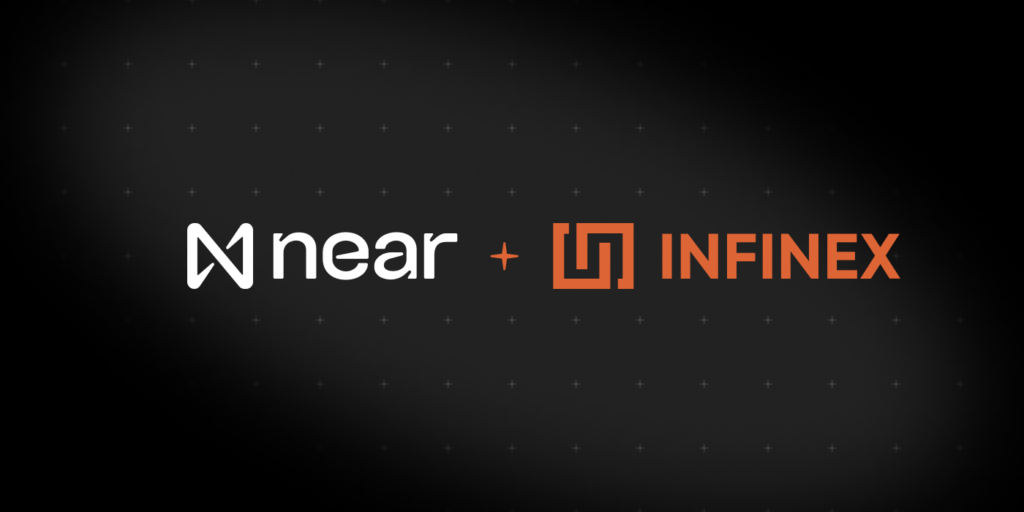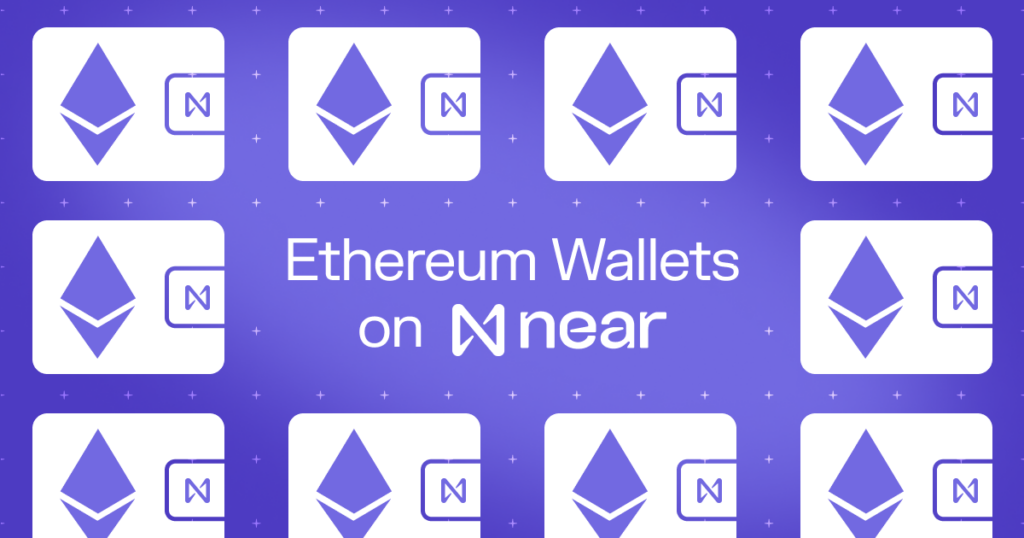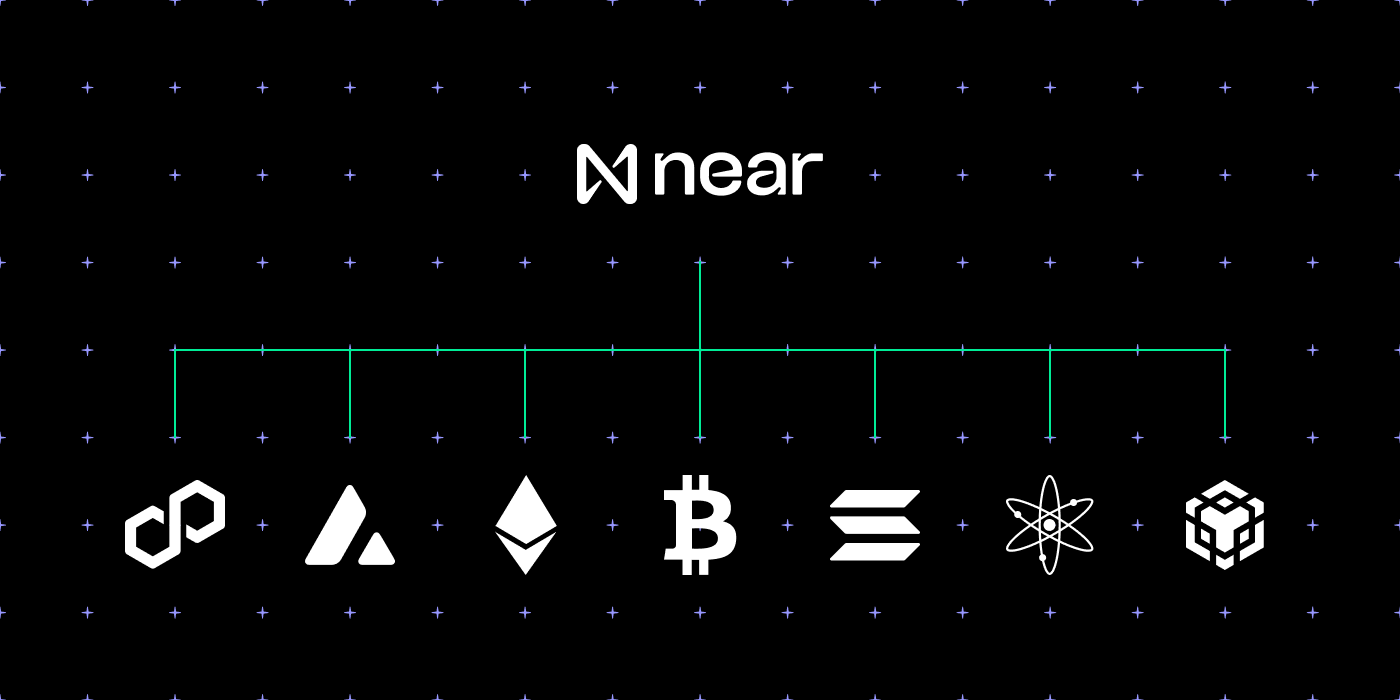Chain Signatures Mainnet Launches: Smart Contracts Can Sign Transactions on Any Blockchain
Today marks the official Mainnet release of Chain Signatures, a groundbreaking Chain Abstraction solution built on NEAR. With the testnet phase and security audit now complete, developers can fully leverage Chain Signatures’ unique omnichain capabilities for their dApps on Mainnet. Degens and end users can now enjoy a fully chain abstracted user experience (UX) on the first cohort of Chain Signatures products already live on mainnet.
Chain Signatures utilizes a decentralized multi-party computation (MPC) network enabling NEAR accounts to sign transactions on any blockchain protocol. Chain Signatures are the only MPC solution where smart contracts can sign transactions on any chain and for any number of accounts. This is because accounts are smart contracts by default in the unique NEAR account model.
Chain Signatures reduce the work of multichain dApp development to a single layer: a smart contract on NEAR that can talk to all other chains. In this way, Chain Signatures abstract away the complexity and hassle of multichain dApps, for developers and users alike, and open up an entirely new design space of applications and user interfaces for Web3. Additionally, while existing bridges or cross-chain messaging protocols cannot support all chains or scale at speed, Chain Signatures can support every blockchain without native integration, whether Ethereum, Bitcoin, the Cosmos ecosystem, or (soon) Solana.
Five applications with more than 6 million active users between them are already using Chain Signatures Mainnet as of launch, with more than fifteen projects actively building. Soon there will be a full ecosystem of Chain Signatures products across this new design space, ranging across wallets, DEXs, lending, trading bots, bridges, and more.
- Sweat Wallet: 2.5 million active Sweat Wallet users (on NEAR) can bridge assets to and from any chain, starting with BNB and Base, while paying for gas in $SWEAT.
- Allstake: Allstake is now live at Phase 0 with mainnet launch on NEAR, Solana, and Ethereum, supporting top LST and LRT protocols such as LiNEAR Protocol, MetaPool, Marinade, Jito, Renzo, and EtherFi.
- HERE Wallet: Mobile, Web, and Telegram wallet supporting transactions on any chain. Check out this Hot Protocol (by Here Wallet) demo.
- Bitte Wallet: Passkey wallets for any chain, including Bitcoin. Connect to all Ethereum apps with Bitte Wallet using WalletConnect. Watch a demo of how Bitte Wallet is using Chain Signatures here.
- Defuse: Truly multichain spot DEX. Trade between any assets on any chain in seconds. See how NEAR Chain Signatures are transforming DeFi in this demo.
Kendall Cole of Proximity Labs – a contributor to Chain Signatures – said, “Chain Signatures is pivotal to replacing the fragmented Web3 landscape with a single user and developer layer that addresses current interoperability challenges. This innovation simplifies the user experience, enables DeFi for blockchains like Bitcoin that do not traditionally support smart contracts, and empowers developers to support all chains seamlessly. By eliminating the need for bridges, Chain Signatures can significantly expand the liquidity and utility of assets across various blockchains. We’re excited to see Chain Abstraction in the wild, transforming how users and developers interact with decentralized finance and making it more accessible.”
Another key layer of the Chain Signatures stack is the Multichain Gas Relayer. Instead of forcing users to acquire a separate gas token every time they transact on a new chain, the Multichain Gas Relayer performs the gas payment on the destination chain, on the user’s behalf. The user only needs to pay the equivalent amount in an asset they already hold, whether that’s NEAR or other NEAR-native fungible tokens (such as USDC or USDT). The power of Chain Signatures, together with the gas abstraction of the Multichain Gas Relayer, offers a streamlined user experience as exemplified by top dApps like Sweat Wallet.
Illia Polosukhin, Co-Founder of Near Protocol and CEO of NEAR Foundation, added, “Chain Signatures is a game-changing innovation that brings Chain Abstraction to life. Whereas before we had fragmented liquidity in DeFi, now there will be a single DeFi layer for all chains. There is no more need for dozens of wallets and addresses, manual bridging, and paying gas fees in every token. Instead, all of DeFi is accessible from wherever users already are. It’s all possible because smart contracts can now sign transactions for any blockchain, even Bitcoin. This opens up a whole new design space for financial apps in Web3, benefitting degens and also paving the way for new user bases.”
As of mainnet launch, Chain Signatures’ MPC network is secured by eight reputable validators: Pagoda, Luganodes, The Lifted Initiative, InfStones, Staking4All, Node.Monster, Black Sand Technologies, and Aurora. The initial audit for the Chain Signatures protocol has been conducted by Kudelski, the final report of which will be published soon on the Chain Signatures GitHub.
The Chain Signatures development roadmap includes adding EDDSA support before the end of the year, increasing throughput, and increasing the number of nodes. As of mainnet launch, Chain Signatures supports all blockchain protocols based on the ECDSA elliptic curve, which includes most chains such as Ethereum, Bitcoin, Dogecoin, and recently, NEAR. With the additional support for the EDDSA elliptic curve (e.g. Solana, TON), Chain Signatures will be able to sign transactions on every known blockchain by Q4 2024. By the end of the year, Chain Signatures will aim to increase throughput up to 300 transactions/second to match NEAR’s sharded capacity. Finally, the number of validators on the network will gradually increase over time with the aim of achieving 40+ highly independent nodes, which would require 27 for a single signature.
For all app builders in Web3 who want to build multichain experiences from day one, explore these resources and start building:
- Chain Signatures: Getting Started Guide
- Multichain Gas Relayer: Getting Started Guide
- Request support for building with Chain Signatures
- Join the Chain Abstraction Dev Group on Telegram
All the above resources and more can be found on the Chain Signatures landing page: https://near.org/chain-abstraction.
Share this:
Join the community:
Follow NEAR:
More posts from our blog



